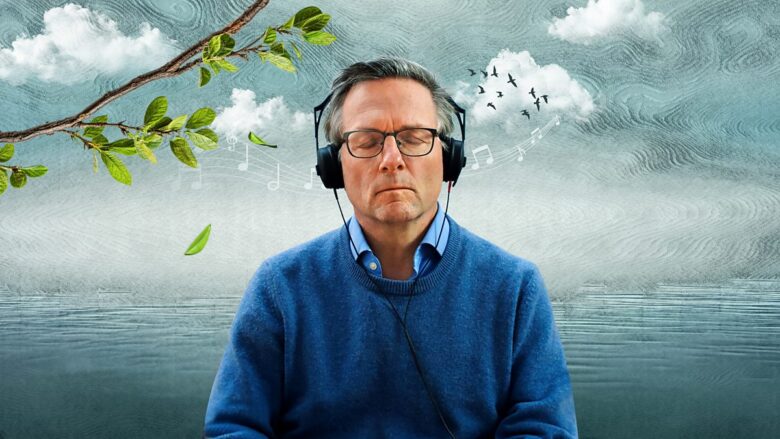Anxiety is a regular problem for many people in our fast-paced society. The constantly changing demands of relationships, work, and personal responsibilities may result in stress and anxiety that makes it difficult to achieve calm. Although therapy and medication are the most common treatment options for anxiety, natural solutions can provide relief. Numerous proven methods can relax the mind, reduce anxiety, and boost mental well-being without the need for drugs.
Through making changes to your lifestyle, implementing relaxation techniques, and embracing a more conscious approach to life, it’s possible to overcome anxiety naturally and regain the peace within. This article will explore scientifically proven strategies to reduce anxiety and improve your overall mental well-being.
Learn Techniques for Deep Breathing:
Deep breathing is among the most basic yet effective ways to soothe the body and mind. When you are stressed, your breathing can become slow and shallow and can increase anxiety. The techniques for breathing deeply, including diaphragmatic breathing as well as four-seven-eight breathing, can help control our nervous system. These techniques decrease stress hormones and encourage relaxation. Studies have shown that controlled breathing boosts the circulation of oxygen to brain cells, lowers heart rate, and increases the stability of your emotions. Regularly practising deep breathing exercises helps to reduce anxiety naturally and provides inner peace.
Engage in Regular Physical Exercise:
Exercise is a proven stress reliever and a key factor in the management of anxiety. Exercise releases endorphins, which are also known for being “feel-good” substances that improve mood and decrease stress levels. Studies have shown that regular exercise reduces cortisol levels, improves sleeping quality, and boosts the overall resilience of your emotions. Exercises like dancing, jogging, yoga, and swimming have proved especially effective in relaxing the mind and decreasing the symptoms associated with anxiety. Even a stroll in the woods could have a major impact on the mental health of a person, as it helps to relax the mind and regain balance.
Be Sure to Eat a Balanced and Nutritious Diet:
The food we eat directly impacts the function of our brain and emotional health. A balanced diet containing whole grains, protein, lean proteins, healthy fats, and fresh vegetables and fruits can improve mood and lessen anxiety-related symptoms. Research has proven that foods high in omega-3 acidic compounds, such as walnuts and salmon, aid in reducing stress and boosting the health of your brain. Magnesium-rich food items like almonds and spinach, as well as dark chocolate, have been proven to ease anxiety and reduce muscle tension. Restricting alcohol, caffeine, and processed foods can also help to prevent anxiety and mood swings, as well as improve mental clarity. A mindful diet and feeding your body with the proper nutrients can help combat anxiety and improve overall health.
High-Quality Sleep Prioritizes:
Sleep deprivation can make anxiety worse and raise stress levels. If the body doesn’t receive enough sleep, it releases greater levels of cortisol, the stress hormone, which can cause feelings of stress and anxiety. A consistent sleep can improve sleep quality and encourage relaxation. Stay away from caffeine and electronic screens before bed. Establishing an environment that is comfortable for sleep and using relaxation techniques like yoga or gentle stretching can aid in falling asleep. Research suggests that getting 7-9 hours of rest every night is vital to keeping your emotions in check and reducing anxiety naturally.
Use Mindfulness Training and Meditative Practice:
Meditation and mindfulness have been extensively recognised for their capacity to decrease stress and anxiety. Mindfulness is the act of being in the present moment, without judgement, which can help break the cycle of thinking too much and overthinking. Methods of meditation, such as guided imagery, transcendental meditation, and loving-kindness, can bring a feeling of relaxation and peace. Studies have proven that regular practice of meditation reduces cortisol levels, improves focus, and enhances the stability of your emotions. Just a few minutes of meditation every day could make a big difference in managing anxiety and achieving inner peace.
Spend Time in Nature:
Nature’s healing properties can be felt in both the body and mind and provide a relaxing way to escape daily stresses. Studies have proven that spending time in the outdoors, whether in a forest, woodland, park, or near the ocean, reduces cortisol levels, reduces anxiety, and improves well-being. The sounds of birds singing, as well as the smell of cool air and the view of lush green landscapes, have a calming impact on the nervous system. Activities like gardening, hiking, or sitting in a tranquil outdoor setting can give you peace and boost your overall mental well-being. Engaging with nature can be a great method to relax and ease anxiety naturally.
Maintain Strong Social Connections:
A supportive social network is essential to managing anxiety. Engaging with trusted family members, friends, or support groups may give emotional support and new perspectives regarding difficult situations. Research suggests that social interactions trigger the release of the hormone oxytocin, which reduces stress and increases feelings of joy. Participating in deep conversations, discussing stories, and seeking the support of friends and family members can alleviate anxiety and provide feelings of belonging. Making time for social interaction and surrounding yourself with positive people is an effective and natural method to manage anxiety.
Limit Exposure to Negative News and Social Media:
The constant encounters with negative media and news could cause anxiety and stress levels to rise. The fear-based narratives and the comparison society that are prevalent on social media sites can create excessive stress and self-doubt. Research has proven that excessive screen time is associated with an increase in anxiety and depression symptoms. In the absence of social media, establishing boundaries for the consumption of news or engaging in actions that encourage relaxation can reduce the effects of anxiety. Concentrating on positive and inspiring content can lead to an improved mindset and promote mental well-being.
Engage in Creative Activities:
Creative expression can be a powerful method of relieving anxiety as well as helping to heal emotional wounds. Activities like painting, writing, listening to music, or making crafts allow you to express your feelings and assist in shifting attention away from the stressors. Research has shown that participating in creative activities lowers cortisol levels, increases self-awareness, and boosts mood. It doesn’t matter if you’re writing down thoughts, playing an instrument, or playing with arts and crafts; creative pursuits are the chance to achieve inner peace and ease anxiety naturally. The act of creating time can bring a sense of fulfilment and emotional relief.
Get Help from a Professional If Required:
While natural strategies are helpful to manage anxiety, seeking out professional assistance is sometimes necessary in certain instances. When anxiety becomes excessive and starts to interfere with your daily routine, therapy or counselling could offer valuable strategies for coping and emotional assistance. CBT is scientifically effective in helping people overcome negative thinking patterns and learn better strategies for dealing with anxiety. There’s no shame in asking for assistance since mental health is as vital as physical health. A professional in mental health can provide guidance based on individual requirements and offer methods to help manage anxiety effectively.
Conclusion:
Anxiety can be a challenge; however, it doesn’t need to be the sole reason for your existence. Through the use of natural techniques such as deep breathing, fitness, healthy nutrition, and mindfulness, it’s possible to decrease anxiety and bring peace to your life. Being in nature and fostering social connections, as well as engaging in creative activities and establishing boundaries with social media, can also help to improve the emotional well-being of people.
Although professional assistance is always a possibility, there are many tried and tested methods that can help you manage anxiety on your own. Making small but significant adjustments to your daily routine can have a significant impact on mental well-being, resulting in an easier, happier, and more balanced existence. Making proactive efforts to combat anxiety can allow people to be more relaxed and have more confidence.
FAQs:
1. Do natural approaches completely alleviate anxiety?
Natural methods can greatly reduce anxiety and boost well-being; however, they will not eliminate it. Regularly practising these methods can aid in managing symptoms effectively.
2. How long will it take to get natural techniques for anxiety relief to show results?
The efficacy of the natural methods for anxiety relief differs from person to person. Certain techniques, such as deep breathing, can provide instant relief, while other techniques, like meditation or exercise, require consistent training over time.
3. Are there specific foods that can help ease anxiety?
Yes, foods that are rich in omega-3 fats, magnesium, and antioxidants, like nuts, salmon, dark chocolate, and leafy greens, have been found to reduce anxiety and improve healthy brain function.
4. Can limiting your social media use help in reducing anxiety?
Yes, limiting exposure to social media can reduce anxiety since excess screen time and negativity could create stress and self-reflection.
5. When should I seek out professional assistance for anxiety?
If anxiety starts to affect your daily routine, work, or relationships, and the natural approaches don’t provide relief, seeking out professional assistance from a counsellor or therapist is suggested.




